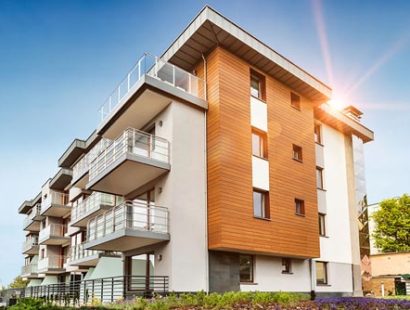Who We Are
At Humanitarian Investments, we put people first. We launch targeted investments that improve the livelihoods of ordinary citizens by enhancing living conditions and revitalizing struggling neighborhoods.
Our focus is on housing, hospitals, nursing homes, and other investments that have the potential to positively impact American lives.
Our full focus is directed toward investments that provide both competitive returns and humanitarian benefits. We believe profitability and social responsibility can go hand in hand.
Our mission is to democratize values-driven real estate investing. We aim to broaden participation while promoting economic, social, and humanitarian well-being. Our key differentiator is our commitment to bettering communities. We enable investors to alleviate local struggles without compromising returns.
With deep expertise, transparent operations, and durable returns, Humanitarian Investments delivers a rewarding experience focused on people, not just profits.
Join us to unlock the vast potential of purpose-driven real estate investing. We help you achieve your financial goals while serving communities and focusing on the human element with every investment.
Your dream - Our commitment
Humanitarian Investments offers profitable and low-risk investment opportunities for novices and seasoned investors alike. We deliver the most effective tools along with optimal opportunities to ensure that investors can achieve their financial goals in a fruitful partnership with us.
Returns are not our only objective. We aim to democratize real estate investing by broadening the pool of participants as well as promoting economic, social, and humanitarian well-being. We view our humanitarian goals as our key differentiator. By investing in our housing program for homeless families, whereby we renovate abandoned houses and transform them into suitable residences, your capital can alleviate the struggles of local communities and economies without compromising your portfolio in the slightest way.
Deep experience in real estate, transparent operations, and durable returns will characterize your experience with Humanitarian Investments. We also offer comprehensive, round-the-clock support to guide you through each step of the investment process. Our bank-grade encryption and industry-leading security protocol safeguard all of your private information.
Join us on this exciting journey to unlock the vast potential of real estate investing. Whether you are looking to diversify your investment portfolio, generate passive income, or build long-term wealth while serving your local communities, Humanitarian Investments enables your specific goals to come to fruition.



Understand the Market
Deep Roots and Vibrant History
Detroit began its journey in the 18th century as a fur-trading post, as part of the North American New France territory. The city was then surrendered to the British in 1760 during the French and Indian War, changing hands again after the Revolutionary War and the Jay Treaty, and becoming a US city.
In 1805 Detroit was chosen as the capital of the newly created Michigan Territory and in the same year, the city was demolished in a fire. Taken by the British during the War of 1812, it was retaken by the US army in 1815. Detroit enjoyed renown as the state capitol from 1837 until 1847 when Lansing assumed the role.
The status of Detroit as a major trade hub grew significantly in the 19th century. The city served as the main relay point between the agricultural interior and the exporting east coast, with regular steamboats and cargo trains converging on the city.
Transformation
Detroit underwent a dramatic transformation after the Civil War, abandoning its traditional role as a rural merchant to that of an industrial magnate. Large automobile manufacturers set up shop, earning the city its reputation as the automobile capital of the world. The industrial power of the city strengthened further during World War I when most of its production capacity was oriented toward manufacturing military gear.
This rapid industrial growth attracted working hands from all over the US, particularly African Americans from the South who found ample job opportunities and higher wages, primarily in the automobile industry. Major demographic changes along with a declining economic milieu set the stage for several unfortunate episodes among the racial groups sharing the city.
Struggle
Detroit’s prosperity did not endure. The city declined starting in the late 1970s, driven largely by the loss of jobs in automobiles, its former powerhouse. By the mid-1990s, Detroit’s population was half of its peak in the 1950s. The stigma of a dying city followed Detroit for decades to come, as tales of its societal and economic woes predominated. Pictures of dilapidated neighborhoods and abandoned houses replaced those of a prosperous city center and vibrant production lines. Political plans to revive the city consistently failed.
cupidatat non proident, sunt in culpa qui officia deserunt mollit anim id est laborum. Sed ut perspiciatis unde omnis iste natus error sit voluptatem
The Renaissance City
Then in the 2010s, promising new private and public initiatives emerged around the city center and surrounding neighborhoods. Through new public policies, urban renewal, and successful startups, Detroit rebranded itself The Renaissance City, reversing many of the negative trends it suffered during previous decades. This auspicious trajectory is attracting the upper and middle class again, families, individuals, and wealthy investors—all seeking to capitalize on new opportunities in Detroit.
Reborn, Detroit presents a golden opportunity for real estate investment. The city center and its surrounding neighborhoods are rife with idle real estate assets ready for renovation, so they can become first-class properties again.
Invest now
Explore Humanitarian Investment opportunities
Non-Profit Partners
Humanitarian Investment Joins hands with Successful Communities to create a better future for our local Detroit communities.
News & Events
Board of directors
Michael A. Eisenberg
Mr. Eisenberg is a top real estate developer as well as a licensed broker and a juris doctor. He possesses extensive knowledge of multiple US cities' markets and specializes in all facets of the business including furnished rentals, optimizing income for owners and sellers, and identifying the best deals for tenants. As his portfolio of properties demonstrates, his eye is always on value.
Jon
Jon is an active entrepreneur across multiple businesses. He was a Fox Business News contributor and Money with Melissa Francis panelist. Leveraging experience from Goldman Sachs, JPMorgan, and small businesses, Jon became a tech startup leader, finding success in business development with the cryptocurrency trading platform XTRD. Additionally, Jon advises companies like DMG360-AdbitMedia, NFT Wine Club, and EcoBuds while giving back through nonprofits Grit and Grind and Fencing in the Schools. He has served on his NYC Community Board and has been appointed an NYPD Community Partner.
Michael A. Eisenberg
Mr. Eisenberg is a top real estate developer as well as a licensed broker and a juris doctor.
He possesses extensive knowledge of multiple US cities' markets and specializes in all facets of the business including furnished rentals, optimizing income for owners and sellers, and identifying the best deals for tenants. As his portfolio of properties demonstrates, his eye is always on value.
Jon Giacobbe
Jon is an active entrepreneur across multiple businesses. He was a Fox Business News contributor and Money with Melissa Francis panelist.
Leveraging experience from Goldman Sachs, JPMorgan, and small businesses, Jon became a tech startup leader, finding success in business development with the cryptocurrency trading platform XTRD.
Additionally, Jon advises companies like DMG360-AdbitMedia, NFT Wine Club, and EcoBuds while giving back through nonprofits Grit and Grind and Fencing in the Schools. He has served on his NYC Community Board and has been appointed an NYPD Community Partner.
Humanitarian Investments Board Members
Humanitarian Investments' board and executives collectively boast over 100 years of experience across health, human services, nonprofits, real estate, and law.
Distinguished board members have tremendous expertise in developing successful healthcare and community service programs implemented worldwide.
Board members with impressive law degrees have created housing and real estate opportunities for thousands across the US.
Members of this board also have over 20 years of public administration experience resolving housing and homelessness issues in major cities.
Dr. Kenneth Redden
Dr. Kenneth Reddan, Ph.D., LCSW is the founder, president, and chief executive officer of Applied Behavioral Sciences. He has 28 years of experience developing and leading healthcare and social service programs and has helped tens of thousands of people overcome extremely impulsive behavioral issues. Dr. Reddan is committed to solving socio-economic problems across the country.
Michael A. Eisenberg
Mr. Eisenberg is a top real estate developer in NYC as well as a licensed broker and a juris doctor. He possesses extensive knowledge of multiple US cities market and specializes in all facets of the business including furnished rentals, optimizing income for owners and sellers, and identifying the best deals for tenants. As his portfolio of properties demonstrates, his eye is always on value.








